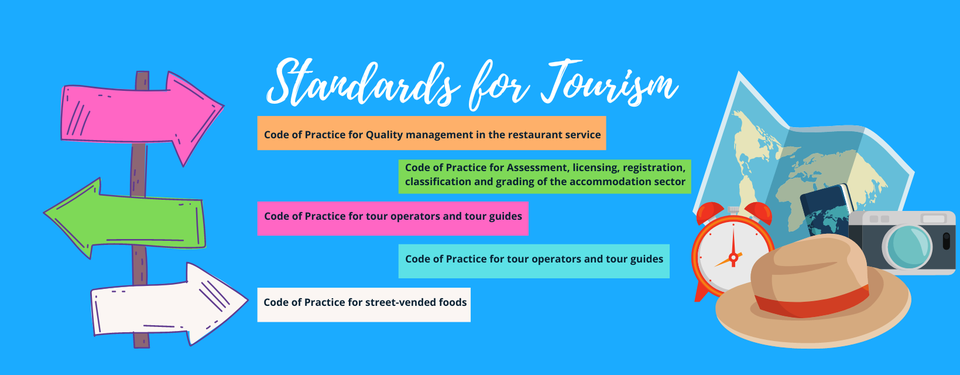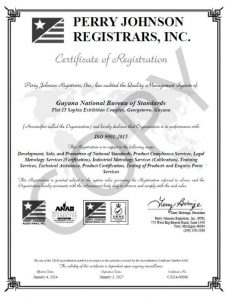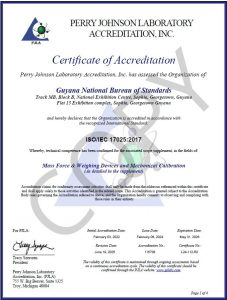Globally, standards are generally known to help manufacturers reduce costs, anticipate and address technical requirements, and increase productive and innovative efficiency. In Guyana, in addition to these benefits, standards are applied in sectors beyond manufacturing to have a more cumulative impact on our economy. This impact contributes to our growing tourism potential.
As customary, November is designated Tourism Awareness Month which is being observed this year under the theme, “All sectors, One Tourism”. Tourism Awareness Month provides opportunities for many local businesses including those offering accommodation, tours, and culinary services to showcase their attractive products and services.
The Guyana National Bureau of Standards (GNBS), as the developer of National Standards, has over the years formulated more than 600 standards applicable to various sectors including agriculture, health, forestry, oil and gas, tourism, manufacturing, mining, and construction. Once implemented, these standards provide requirements to improve the products, processes and services of companies and businesses operating within these sectors.
When the quality of our local products and services is enhanced broadly in other sectors, our tourism experience also improves. For example, in agriculture, when we can produce, grade, store and prepare our fruits and vegetables based on standards, we can be confident that our agri-produce are wholesome; free of blemishes that can result in illnesses. The expectations are similar when standards are applied for other local food and food-grade products prepared by our numerous restaurants and fast-food establishments.
Similarly, increased visits to our shores continue to push the demand for quality housing and accommodation. When quality products are utilized in construction, furnishing, landscaping, electrical installation, plumbing, etc. tourists’ comfort, and reliability of installations and fittings are assured.
Meanwhile, for tourism standards, the GNBS continues to promote what’s available to the sector to meet and exceed tourist and user expectations. These standards include the standard for Bed and Breakfast facilities (GYS 514:2016)which can be implemented by homeowners looking to benefit financially from extra rooms they have available.
There is also the Code of Practice for Quality Management in the Restaurant Services (GCP 17:2003) which specifies the managerial requirements necessary to ensure the efficient running of any restaurant establishment and seeks to ensure quality in the sight of its customers. Additionally, the Code of Practice for tour operators and tour guides (GCP 18:2003) specifies acceptable practices to be used by tour operators and tour guides. It is intended for use as a quality tool by tour guides and tour operators, present and prospective members of tour parties, and the relevant authorities and agencies responsible for tourism in Guyana. Our many local tour operators can integrate these guidelines when facilitating these adventures.
Lastly, the Code of Practice for the Assessment, licensing, registration, classification, and grading of the accommodation sector (GCP 15:2003) specifies the requirements for the monitoring and management of hotels, apartments, and guesthouses. The standard also addresses rates for various types of accommodation, requirements for electrical installation and supply, fire safety requirements, the storage, preparation, and service of food and beverages, and the general hygiene of establishments and employees.
Finally, as we celebrate Tourism Awareness Month and experience our country’s tourism, we must underscore and appreciate the usefulness of standards in holistically supporting providers of quality tourism products and services. Providers are encouraged to contact the GNBS to acquire and learn more about available National and International standards. The Bureau also provides training on these standards for businesses and individuals.
For further information on this subject, contact the GNBS on telephone numbers: 219-0064-66 or WhatsApp: 692-4627.






